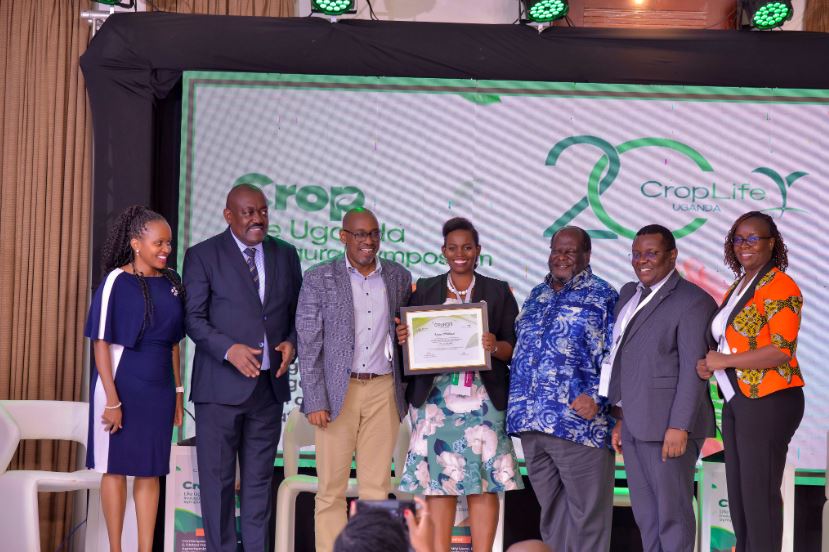
The CropLife Uganda Inaugural Agrochemical and Fertiliser Symposium 2025, held at Kampala Serena Hotel, marked a significant milestone in Uganda’s agricultural sector.
The symposium, themed “Contemporary Local, Regional, and Global Trends in the Agrochemical Industry,” brought together over 200 delegates from various stakeholders, including industry leaders, government officials, development partners, academia, civil society, and the media fraternity.
According to Agnes Mbabazi, the Board Chairperson at CropLife Uganda, with over 30 leading agrochemical and fertiliser companies united under CropLife Uganda, the symposium offered a dynamic platform to share, connect, and shape the future of sustainable agriculture.
Key Takeaways
The symposium focused on several key areas that will drive Uganda’s agricultural sector, including:
Safer agrochemical practices
It highlighted the need to promote responsible use of agrochemicals to ensure environmental sustainability and human safety. Solomon Seruwo, the Marketing and Business Development Manager at Bukoola Chemical Industries, delivered a powerful session on the impact of counterfeit agrochemicals and fertilisers across Africa.
He highlighted the economic risks, threats to farmer safety, and shared practical solutions to safeguard the industry. He noted that this is a critical conversation and a call to action for regulators, suppliers, and stakeholders.
Professor Morris Ogenga Latigo, an entomologist and agricultural scholar, delivered a compelling presentation on the responsible use of agrochemicals and fertilisers. His session addressed the critical intersection of environment, health, security, and safety (EHSS), urging evidence-based practices and stronger accountability across the sector. He sounded a serious reminder that sustainability starts with responsibility.
Highly Hazardous Pesticides (HHPs)
The panellists at the symposium discussed regulations and best practices for managing EU Regulation of HHPs in Uganda in order to minimise risks to human health, animal life and the environment.
Inclusive policies and regulatory frameworks
Panellists at the symposium highlighted the urgency to foster policies that support the growth and development of the agricultural sector while ensuring inclusivity and equity.
Youth and Women Empowerment
The symposium, which was partly sponsored by Stanbic Bank, addressed the empowerment of women, youth, and marginalised groups through encouraging the participation of these demographics in agriculture to promote inclusive growth, which is in line with the Stanbic WYF (Women, Youth and Farmers) agenda.
Digitisation in agriculture
The symposium observed that there is a need to explore the potential of technology and Artificial Intelligence (AI) to transform the agricultural sector and improve productivity.
Industry Unity and Collaboration
The symposium showcased the unity and commitment of the agrochemical and fertiliser industry in Uganda, with over 30 leading companies participating, including multinational companies like Syngenta, YARA, Bayer, and BASF.
The event provided a platform for industry leaders to share knowledge, showcase innovations, and collaborate on shaping the future of sustainable agriculture.
Expert Insights
The symposium featured keynote speaker Prof. Hamadi Boga, Vice President of AGRA and former Permanent Secretary in the Ministry of Agriculture in Kenya. Prof. Boga shared his wealth of knowledge and experience, leaving a lasting impact on the delegates.
“To move forward, we must invest in meaningful partnerships that drive food security across Africa. The key is addressing local realities with tailored, impactful solutions, not one-size-fits-all approaches,” Prof. Boga said.
The CropLife Uganda Symposium 2025 marked a significant step towards promoting sustainable agricultural growth in Uganda.
By bringing together industry leaders, government officials, and other stakeholders, the symposium paved the way for collaborative action and innovation in the agricultural sector.
With a focus on safer and more sustainable practices, inclusive policies, and technological innovation, the symposium set the stage for a resilient, inclusive, and tech-driven agricultural sector that will drive Uganda’s economic growth and development.
